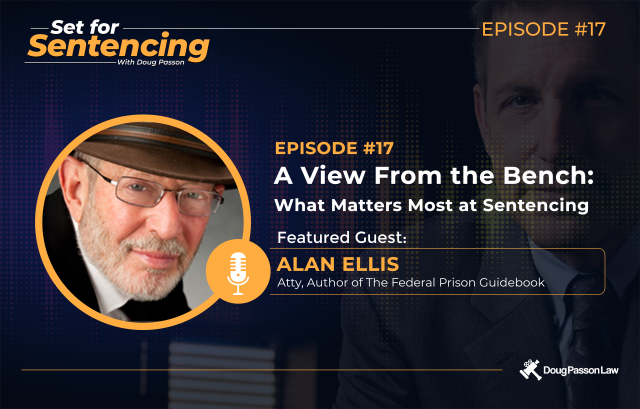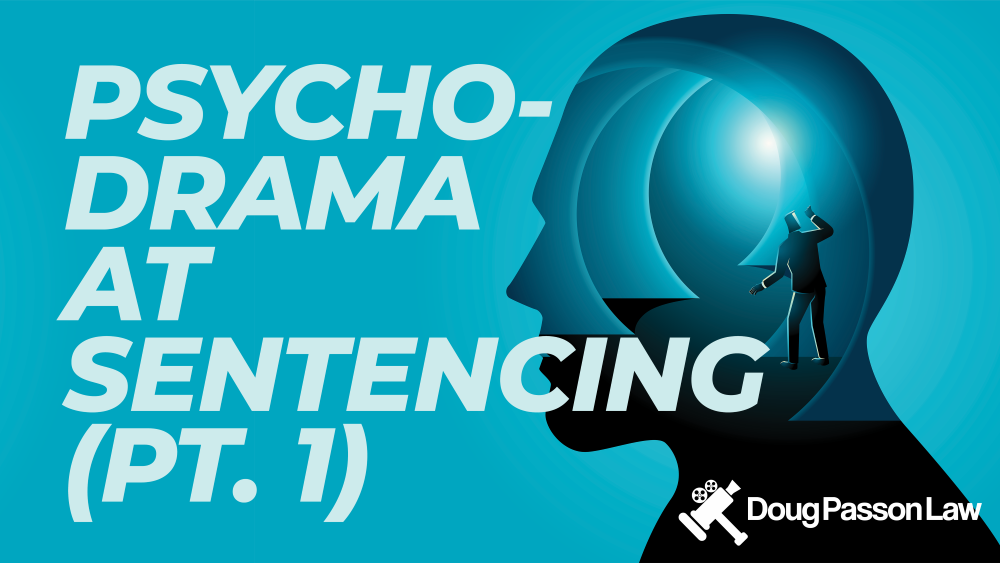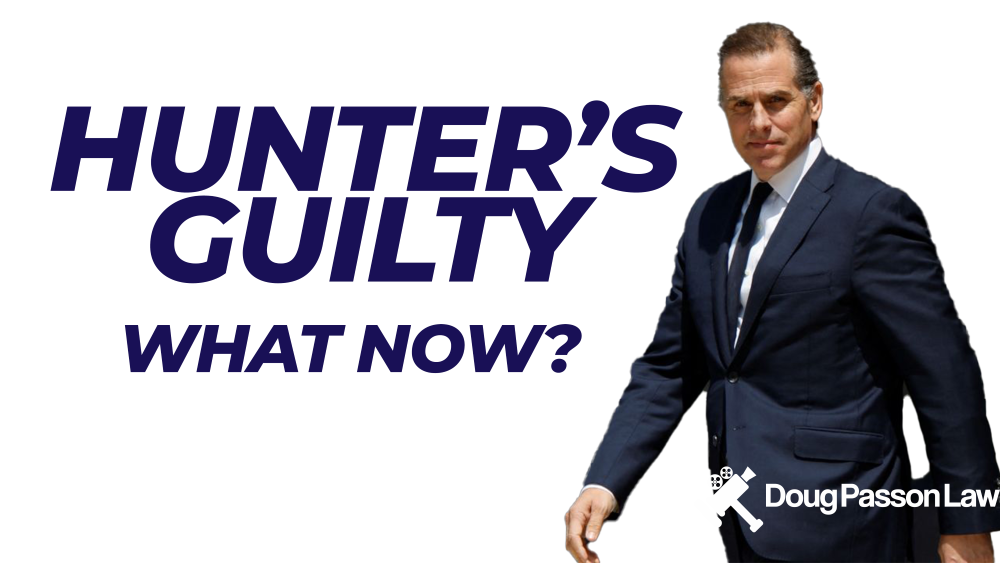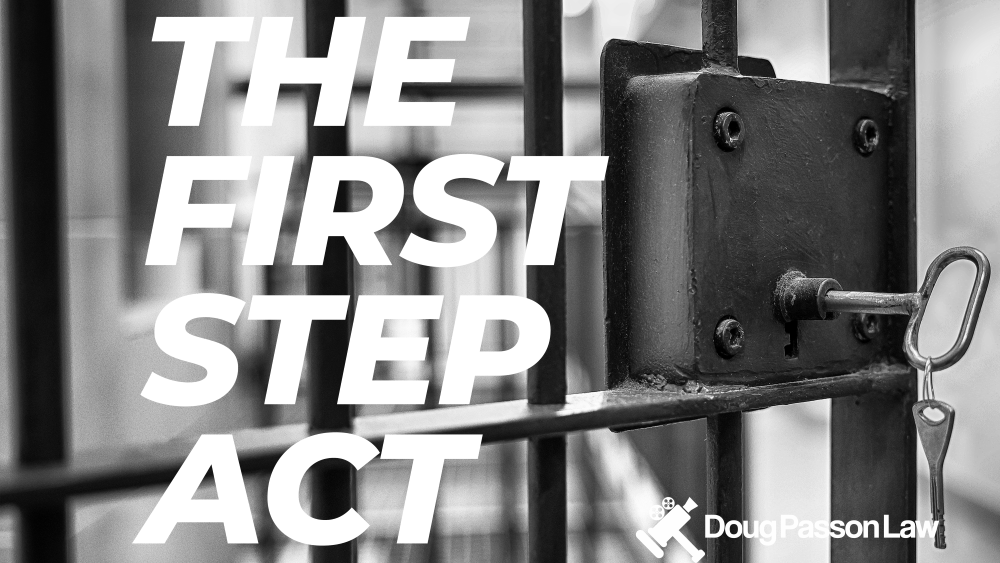A View From the Bench: Sentencing Expert Alan Ellis Discusses His Interviews with 40+ Judges About What Matters at Sentencing

Watch on YOUTUBE or LISTEN ON APPLE PODCASTS
Helping us get set for sentencing, attorney Alan Ellis. He’s an expert in all things sentencing and post-conviction relief and the author of the wildly popular Federal Prison Guidebook.
IN THIS EPISODE:
- The importance of knowing your Judge;
- How to develop mental health mitigation;
- The need to develop a powerful and credible narrative;
- The need for qualified sentencing experts;
- Pros and cons of sentencing letters;
- Restitution as mitigation;
- The need to properly prepare a client to allocute;
- Effective use of sentencing mitigation videos;
- Showing true character with things your client has done “when no one is keeping score”;
- The importance of developing early mitigation and getting to decision makers (prosecution and probation) well in advance of sentencing;
- Effective sentencing memoranda: less is more, and no boilerplate;
- Putting pictures in pleadings;
- The truth about Prison Consultants, or so-called “fixers”;
- Vouching – can you do it?
LINKS:
Taking a page from death penalty mitigation: A theme running through this disucssion is the need for EARLY and thorough mitigation development. This brings us back to our very first episode with death penalty mitigation specialist, and CEO of Advancing Real Change, Inc., Dr. Elizabeth Vartkessian. You can watch that episode here on YOUTUBE or listen on APPLE PODCASTS.
We also sung the praises of perhaps the most qualified “prison consultant” in the profession, former BOP warden, Maureen Baird. I was also fortunate to have her on the podcast early on, so here’s the YOUTUBE and APPLE links for that great episode as well.
FREE RESOURCE: Visit the shownotes to download a copy of the “How To Write a Sentencing Letter” document Alan and I discussed. Remember, sentencing letters are about QUALITY, not QUANTITY. They can be useful at sentencing, if done right. But they are simply one element of a much bigger mitigation narrative. Ideally, they are carefully vetted to ensure they support, rather than contradict the theory and themes of your sentencing presentation.
Watch on YOUTUBE or LISTEN ON APPLE PODCASTS
Sharing is caring!



